Duck's Daily Diet: A Comprehensive Guide by ZiDtia
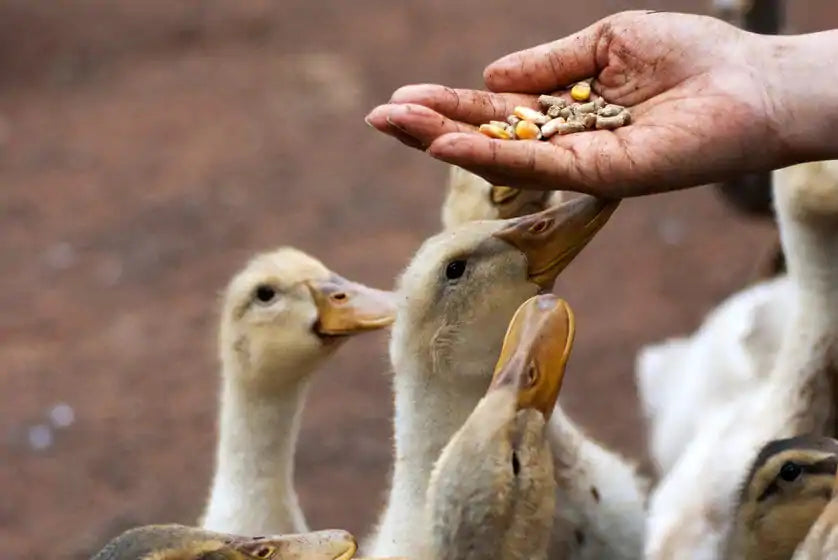
Ducks are charming and increasingly popular as pets, offering both companionship and practical benefits. Understanding their dietary needs is crucial for their health and happiness. In this article, we'll delve into the essentials of a duck's daily diet, combining knowledge and products from ZiDtia, renowned for their quality chicken coops and runs.
Understanding Ducks' Nutritional Needs
Ducks, like all poultry, require a balanced diet to thrive. A well-planned diet ensures they get the right mix of proteins, carbohydrates, vitamins, and minerals. Commercial feeds often provide a solid foundation, but understanding the nuances of their dietary needs can significantly boost their health.
Commercial Feed for Ducks: What to Look For
Commercial duck feed is formulated to meet most of their nutritional needs. However, not all feeds are created equal. It's important to choose a feed that's age-appropriate and meets the specific needs of ducks, rather than generic poultry feed.
Incorporating Home Foods in Ducks' Diet
Safe Home Food Options for Ducks Ducks can eat a variety of home foods, including:
- Vegetables: Vegetables like lettuce, beets, pumpkin, and carrots are all favored by ducks. They not only provide necessary vitamins and minerals but also increase the fiber content in their diet.
- Fruits: Fruits such as apples, pears, and grapes (seedless) are good choices for ducks. They are rich in vitamins and provide natural sugars and hydration.
- Grains: Cooked rice or millet can supplement a duck's diet. These grains are easy to digest and provide energy.
- Protein Sources: Cooked chicken eggs or small fish can provide high-quality protein for ducks.
Foods to Avoid Feeding Ducks At the same time, there are some home foods that should absolutely not be given to ducks, as they are toxic to them. These include:
- Onions and Garlic: These foods contain substances that can cause damage to the red blood cells in ducks.
- Chocolate: The cocoa in chocolate contains chemicals harmful to ducks, potentially leading to heart and nervous system problems.
- Avocado: Certain components in avocados are toxic to ducks and can cause heart problems.
- Coffee Beans and Tea Leaves: These caffeine-containing foods are dangerous to ducks' hearts and nervous systems.
- Sugar and Salt: Excessive sugar and salt are harmful to ducks' health and can lead to dehydration or nutritional imbalances.
- Raw Beans and Potatoes: Uncooked beans and potatoes contain toxic substances that can cause digestive issues.
The Vital Role of Water in Ducks' Diet
Water is an essential part of a duck's diet. Ducks use water not just for drinking, but also for cleaning their food and maintaining their beaks. Clean, fresh water should be available at all times, and ZiDtia's innovative water solutions can help ensure that your ducks are well-hydrated.
Feeding Ducks in Different Life Stages
The dietary needs of ducks change as they grow. Ducklings require more protein for growth, while adults need a balanced diet to maintain their health. Adjusting their diet as they age is key to ensuring their long-term health.
Seasonal Adjustments in Ducks' Diet
Dietary Needs of Ducks at Different Growth Stages
Understanding and adapting to the changing dietary needs of ducks at different stages of their life is key to ensuring their healthy growth and well-being. Let's explore the dietary requirements of ducks throughout their different life stages.
Duckling Stage (0-4 Weeks)
- In the first few weeks, a duckling's diet should be rich in protein to support rapid growth. Special duck starter feed, designed to meet their nutritional needs during early growth, is the best choice.
- High Protein Feed: Opt for feed with a protein content between 20% and 22%.
- Warm Water and Soft Food: Provide warm water and softened food to aid digestion.
- Avoid Coarse Fiber: Ducklings' digestive systems are not fully developed at this stage, so high-fiber foods should be avoided.
Growing Ducks (5-20 Weeks)
- As ducks grow, their diet should gradually shift from high protein to a more balanced nutritional combination. The need for protein decreases, while the need for carbohydrates and fats increases.
- Balanced Protein and Energy: Choose feed with a protein content between 16% and 18%.
- Introducing New Foods: Start gradually introducing new foods like green leafy vegetables and fruits.
- Maintaining Clean Water Sources: Having access to clean water is essential at this stage.
Adult Ducks (21 Weeks and Older)
- The diet of adult ducks should focus more on maintaining health and weight. The choice of feed should prioritize quality over quantity.
- Low Protein, High Fiber: Opt for feed with a protein content between 14% and 16% and ensure it contains sufficient fiber.
- Rich in Vegetables and Fruits: Continue providing a variety of vegetables and fruits for adequate vitamin and mineral intake.
- Moderate Grains: Provide a moderate amount of grains, such as wheat and corn, to maintain energy levels.
Special Considerations
- Seasonal Adjustments: Adjust the type and amount of feed based on seasonal changes. In colder seasons, an increase in energy intake might be necessary.
- Breeding Season Diet: If ducks are in their breeding season, an increase in protein intake may be needed to support egg production.
Understanding and adapting to the dietary needs of ducks at different stages of their lives ensures their healthy growth and maintains their good physical condition. Adjusting their diet as they grow from ducklings to adult ducks is a key factor in ensuring their long-term health.
Health Benefits of a Balanced Diet for Ducks
A balanced diet is crucial for maintaining good health in ducks. It affects everything from their feather quality to their overall longevity. Paying attention to their diet can prevent many common health issues.
Common Dietary Problems and Solutions
Understanding common dietary problems in ducks, such as nutritional deficiencies or obesity, is important. Recognizing the signs early and adjusting their diet accordingly can prevent long-term health issues.
DIY Duck Feed: Homemade Recipes
For those interested in a more hands-on approach, homemade duck feed can be a great supplement to commercial options. Simple recipes using grains and greens can provide variety and additional nutrients.
ZiDtia's Chicken Coop and Chicken Run: Ideal for Duck Housing
ZiDtia's chicken coop and chicken run, while originally designed for chickens, are also exceptionally well-suited for housing ducks. These structures play a crucial role in ensuring the health, safety, and comfort of ducks. Let's dive into the features that make ZiDtia's coop and run ideal for duck housing and how they contribute to the overall well-being of these waterfowl.
Organic Feeding Options for Ducks
Organic feeding is becoming increasingly popular among duck owners. Organic feeds are free from pesticides and additives, potentially offering health benefits for your ducks.
Supplements and Treats for Ducks
While ducks get most of their nutrition from their main diet, supplements and treats can be used occasionally. It's important to choose healthy options and use them sparingly.
Hydration Solutions from ZiDtia
ZiDtia's range of hydration solutions ensures that ducks have constant access to clean water, which is vital for their health and well-being.
Feeding Ducks in Small vs. Large Flocks
Feeding strategies can vary depending on the size of the flock. In larger flocks, ensuring that all ducks have access to food can be a challenge, and may require specific feeding strategies.
Expert Tips for Feeding Ducks
Drawing on expertise from ZiDtia, this section offers valuable insights and best practices for feeding ducks, ensuring that they receive optimal nutrition every day.
The Future of Duck Diet and Nutrition
As our understanding of duck nutrition evolves, so do the products and strategies used to feed them. ZiDtia is at the forefront of this evolution, continuously adapting to the latest trends and research in duck care.
Conclusion and Further Resources
In conclusion, a well-balanced diet is key to raising healthy and happy ducks. By following these guidelines and utilizing products like ZiDtia's chicken coops and runs, you can ensure your ducks are well cared for. For more information and resources on duck care, visit our website.
No comments










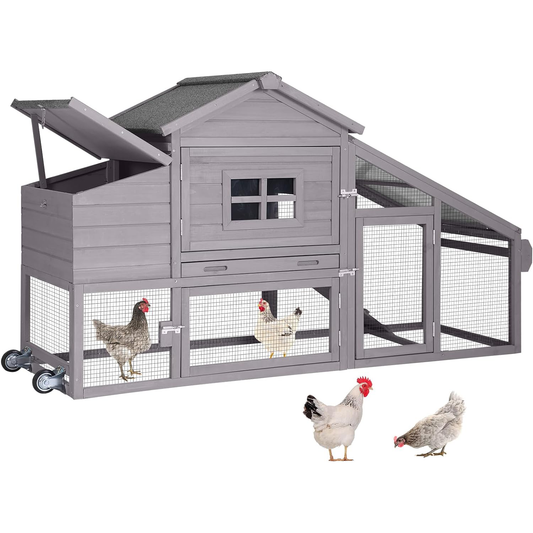

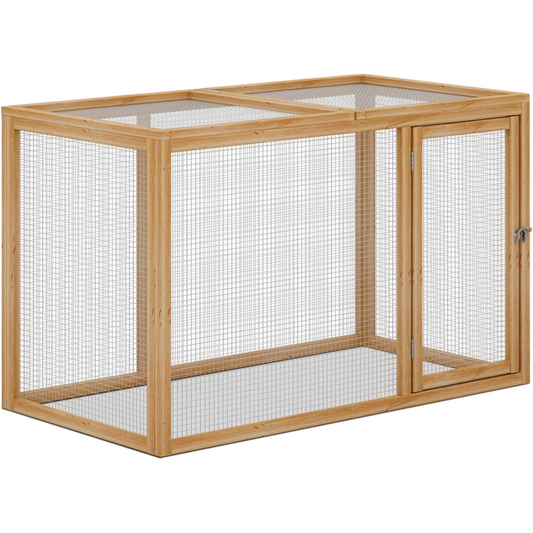

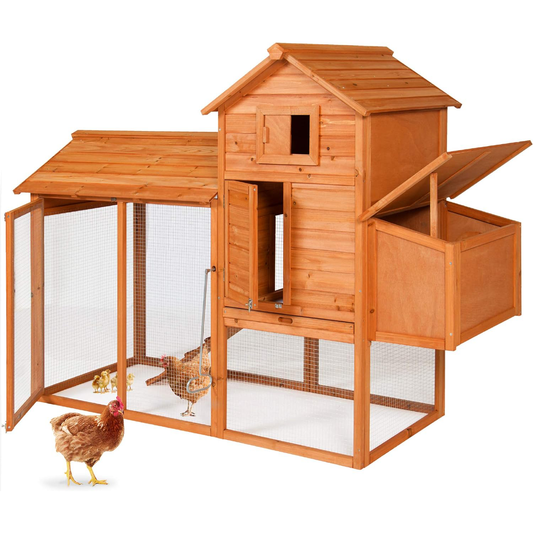

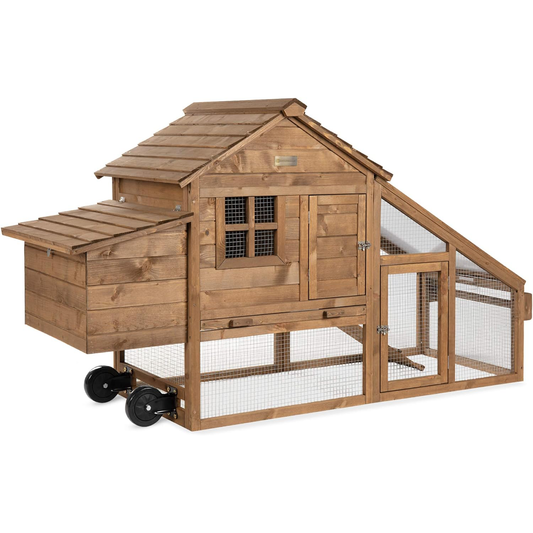




0 comments